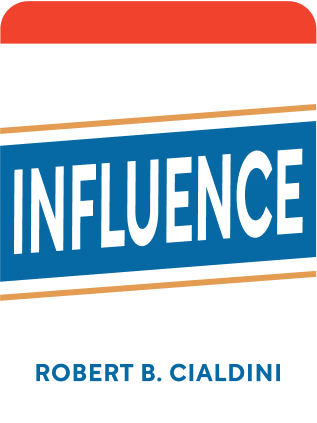

This article is an excerpt from the Shortform summary of "Influence" by Robert B. Cialdini. Shortform has the world's best summaries of books you should be reading.
Like this article? Sign up for a free trial here .
Why are sports fans so devoted to their teams? What is it about the psychology of sports fandom that leads to such visceral responses? The association principle plays an important role in sports fandom.
People try to associate themselves with the achievements and victories of others. See how the psychology of sports fandom demonstrates the association principle and how it’s used for marketing.
Love (Or Hate) by Association
The association principle is a theory that stating that you like or dislike people based on what you associate them with. You like people who bring you good news, and “shoot the messengers” who bring us bad news.
In the ancient Persian Empire, imperial messengers were always in a precarious position. They would be fêted and celebrated by the emperor if they brought tidings of a military victory. But if they came bearing news of a defeat, they would be summarily executed.
In a modern-day analogue, consider the plight of weather forecasters. Weather forecasters have been shown to be met with hostility, threats, and even violence when they predict bad weather. The association bias is so strong that people come to believe that adverse weather events are caused by the forecasters themselves—meteorologists have been accused of causing snow, tornadoes, and hurricanes!
Endorsements
Compliance practitioners are adept at associating their products or brands with people or things that the public knows and likes, in the hopes that we’ll come to like the products more by association.
Presidential candidates seek the support of athletes, performing artists, and other non-political cultural figures during a campaign, even though the approval of these people has nothing to do with government or public policy.
After the 1969 moon landing, all sorts of products incorporated space travel or lunar themes into their marketing and advertising. And every two years, we’ve become used to the spectacle of brands labeling themselves “ the official fast food,” “the official toothpaste,” or “the official soft drink” of the U.S. Olympic team.
The psychology of sports fandom shows the influence of athletes. Athletes are probably the most sought-after product endorsers, because marketers know that their associative persuasive appeal is deep and widespread, cutting across ethnic, regional, age, and economic demographic groups. Also, athletes are linked to many positive attributes that brands are eager to associate themselves with: youth, strength, winning, prowess, and physical attractiveness.
(Shortform note: A quick look at some of the biggest endorsement deals in sports will show just how high a premium brands place on the association principle as seen in the psychology of sports fandom. NBA Star Steph Curry’s contract with Under Armour is reportedly worth $285 million. Global soccer icon Cristiano Ronaldo’s deal with Nike is estimated at around $1 billion. And NBA megastar LeBron James has a lifetime endorsement deal with Nike that goes into ten figures. )
Psychology of Sports Fandom
Not only do marketers wish to associate their products with well-known symbols of public admiration—people try to associate themselves with the achievements and victories of others.
The psychology of sports fandom illustrates this quite well. Sports are a deadly serious business for the fan. Their very sense of self hangs in the balance depending on the outcome of the game.
This is compounded because most sports teams are rooted in a specific geographic location. Thus, the fan wraps up the team’s performance with their own sense of pride in their culture, their home, their family, and their being: when the team loses, the fan personally feels like a loser. Thus, fans cheer the players who spur the team on to victory and mercilessly hound those whom they judge responsible for its failures.
(Shortform note: One famous example is the story of Boston Red Sox first baseman Bill Buckner. His error in Game 6 of the 1986 World Series caused the team to lose the game, and ultimately the series, when they were on the verge of clinching the championship. The reaction from fans and the media in Boston was brutal: Buckner received death threats and was forced to leave the city for his own safety.)
Association shows itself most strongly in the language fans use to describe a team’s performance. Studies of the psychology of sports fandom have shown that when the team wins, fans use more first-person pronouns to describe the outcome: “We won,” “Our offense dominated theirs today” “My team wiped the floor with you.” Because of the victory, fans are looking to deepen their connection to the team.
The opposite phenomenon happens in the wake of a loss, with fans using more indirect, third-person language: “They totally blew it out there,” “Those guys were sleepwalking through that game,” “That performance was horrible.” Because of the loss, fans are looking to disassociate themselves from the team. This is the other side of the psychology of sports fandom.

———End of Preview———
Like what you just read? Read the rest of the world's best summary of Robert B. Cialdini's "Influence" at Shortform .
Here's what you'll find in our full Influence summary :
- How professional manipulators use your psychology against you
- The six key biases you need to be aware of
- How learning your own biases will help you beat the con men around you






